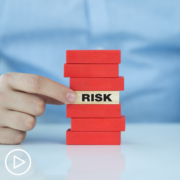CLL and Vaccines | Vital Advice for Protecting Patients
CLL and Vaccines | Vital Advice for Protecting Patients from Patient Empowerment Network on Vimeo.
What do chronic lymphocytic leukemia (CLL) patients need to know about vaccines? Expert Dr. Ryan Jacobs explains CLL treatments that reduce vaccine response and his vaccine recommendations.
Dr. Ryan Jacobs is a hematologist/oncologist specializing in Chronic Lymphocytic Leukemia from Levine Cancer Institute. Learn more about Dr. Jacobs.
Download Resource Guide | Descargar Guía en Español
Related Programs:

How Can I Ensure My CLL Doesn’t Progress to Richter’s Transformation? |

|

CLL Genetic Markers: What Should I Ask About Prognostic Factors? |
Transcript:
Lisa Hatfield:
So we have another patient who has asked a series of questions. Her first question is, “Can you speak to immune vulnerability and the importance of regular vaccination for CLL patients?”
Dr. Ryan Jacobs:
Yes. So we know that having active CLL reduces a patient’s ability to respond to vaccination and increases redirection, we know being on treatment for CLL also produces varying risk depending on the treatment. The drugs that seem to do the most damage to the immune system, and specifically in terms of their ability to respond to vaccination or the antibody treatment like rituximab (Rituxan) and obinutuzumab (Gazyva), and their effects last for many months after that treatment is finished. Unlike the oral drugs which have a short half-life, the antibodies hang around for many months after being administered.
I in general am recommending, as does the CDC, to get boosted every six months for patients with any level of immune suppression and having CLL qualifies you as that. And then I recommend all of the general vaccines that come with age, like, for example, the Shingrix vaccine for shingles is now safe to give to CLL patients because it’s a conjugate vaccine, it’s not a live virus vaccine.
So we’re lucky now with just standard vaccines in the U.S., there are no live virus vaccines that the CLL patient has to worry about anymore, so I definitely encourage shingles, pneumonia vaccines, boosting for COVID. We’ll see if we get an RSV vaccine, that sounds like it’s on the horizon. Flu, of course. And the patient should just be aware based on what kind of treatment that they’re on, they may not have a good chance at responding to these vaccines, but I still try with my patients. The other important element to think about when you’re considering an infection risk and everything is just kind of what’s…obviously, the pandemic has been a very dynamic thing, and certain times there’s been a lot more risk than others. Thankfully, at the time of this recording, we’re doing on probably as good as we’ve done since the onset of COVID. So you have to make your decisions on the situations you put yourself into, based on your personal situation and what’s going on in the bigger picture, risk-wise. Flu season, COVID season, a lot of RSV going around or something like that.



